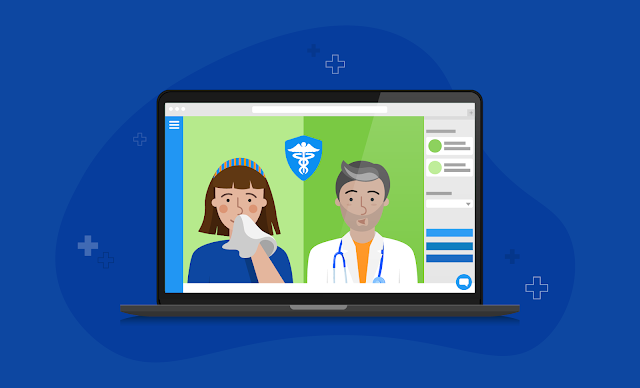In today's digitally-driven healthcare landscape, the protection of sensitive patient information is of paramount importance. The Health Insurance Portability and Accountability Act (HIPAA) sets the standards for safeguarding patient data and ensuring its confidentiality, integrity, and availability. A HIPAA-compliant platform plays a crucial role in achieving these goals. In this article, we will explore the 15 essential features that a HIPAA-compliant platform must possess.
Robust Data Encryption
One of the fundamental requirements for a HIPAA-compliant platform is robust data encryption. Encryption ensures that patient data is secure during storage and transmission. The platform should employ strong encryption algorithms, such as AES (Advanced Encryption Standard), to protect sensitive information from unauthorized access.
Access Controls and User Authentication
A HIPAA-compliant platform should have strict access controls and user authentication mechanisms in place. It should allow role-based access, limiting user permissions to only the data they need to perform their duties. Multi-factor authentication adds an extra layer of security by requiring users to provide additional credentials, such as a one-time password or a fingerprint scan.
Audit Trail and Activity Monitoring
Maintaining an audit trail and monitoring user activities is crucial for HIPAA compliance. The platform should log all access attempts, modifications, and data transfers, allowing for easy identification of any unauthorized or suspicious activities. Regular monitoring of the audit trail helps detect security breaches promptly.
Secure Messaging and Communication
Healthcare professionals often need to communicate and share sensitive patient information securely. A HIPAA-compliant platform should provide secure messaging capabilities, including end-to-end encryption and secure file sharing. It should also support secure video conferencing for telemedicine consultations while ensuring the confidentiality of patient data.
Data Backup and Disaster Recovery
Data loss can have severe consequences in healthcare settings. A HIPAA-compliant platform should have robust data backup and disaster recovery mechanisms. Regular backups, stored in encrypted form, should be performed to ensure that patient data can be restored in the event of system failures, natural disasters, or cyber-attacks.
Risk Assessment and Management
To maintain HIPAA compliance, a platform must undergo regular risk assessments to identify potential vulnerabilities and implement appropriate mitigation strategies. The platform should have a comprehensive risk management framework in place to address identified risks promptly. Regular security audits and vulnerability scans should be conducted to ensure ongoing compliance.
HIPAA Training and Education
A HIPAA-compliant platform should offer training and educational resources to its users. Healthcare professionals need to understand their responsibilities regarding patient privacy and security. The platform should provide comprehensive training on HIPAA regulations, best practices for data protection, and guidelines for secure platform usage.
Business Associate Agreements (BAAs)
HIPAA requires covered entities to have Business Associate Agreements (BAAs) with any third-party service providers they engage with. A HIPAA-compliant platform should offer BAAs to its clients, clearly outlining the responsibilities and obligations of both parties regarding the protection of patient data. The BAA should address aspects like data handling, storage, and breach notification procedures.
Regular Updates and Patch Management
Maintaining a secure platform requires regular updates and patch management. A HIPAA-compliant platform should have a robust update mechanism to address any identified vulnerabilities promptly. Patch management ensures that any security patches or fixes are promptly applied to protect against known threats.
Compliance with HIPAA Regulations
Above all, a HIPAA-compliant platform must adhere to all the regulations and requirements outlined by HIPAA. It should comply with the Privacy Rule, Security Rule, and Breach Notification Rule. The platform provider should undergo regular audits and assessments to demonstrate ongoing compliance and ensure the highest level of data protection.
Secure Mobile Access
With the increasing use of mobile devices in healthcare, it is essential for a HIPAA-compliant platform to offer secure mobile access. The platform should have dedicated mobile applications with robust security measures in place, such as secure authentication, data encryption, and remote wipe capabilities to protect patient data if a device is lost or stolen.
Secure Cloud Infrastructure
Many healthcare organizations are leveraging cloud computing to store and manage patient data. A HIPAA-compliant platform should ensure that its cloud infrastructure meets the necessary security standards. It should have strong access controls, data encryption, regular data backups, and disaster recovery mechanisms in place to safeguard patient information stored in the cloud.
Incident Response and Breach Notification
Despite the best security measures, security incidents or data breaches can occur. A HIPAA-compliant platform should have a well-defined incident response plan in place. This plan should include procedures for promptly identifying and containing incidents, notifying affected parties, and cooperating with relevant authorities in accordance with HIPAA breach notification requirements.
Secure Integration Capabilities
Healthcare organizations often use multiple systems and applications to manage patient data. A HIPAA-compliant platform should have secure integration capabilities to facilitate the seamless and secure exchange of data between different systems. It should support standard protocols, such as HL7 or FHIR, and ensure that data integrity and security are maintained throughout the integration process.
Regular Security Audits and Penetration Testing
To ensure the ongoing security and compliance of a HIPAA-compliant platform, regular security audits and penetration testing are essential. The platform provider should conduct comprehensive audits to assess the effectiveness of security controls, identify potential vulnerabilities, and implement necessary improvements. Regular penetration testing helps identify any weaknesses in the system and ensures that proper measures are in place to mitigate risks.
Conclusion
A HIPAA-compliant platform must encompass a comprehensive set of features to ensure the security, confidentiality, and integrity of patient data. From robust data encryption and access controls to secure messaging and compliance with HIPAA regulations, these 15 must-have features, along with the additional five points discussed, provide the foundation for a HIPAA-compliant platform that prioritizes the protection of sensitive healthcare information. Implementing such a platform is crucial for healthcare organizations aiming to deliver high-quality care while maintaining strict data privacy standards.

No comments:
Post a Comment